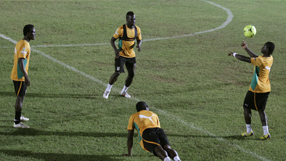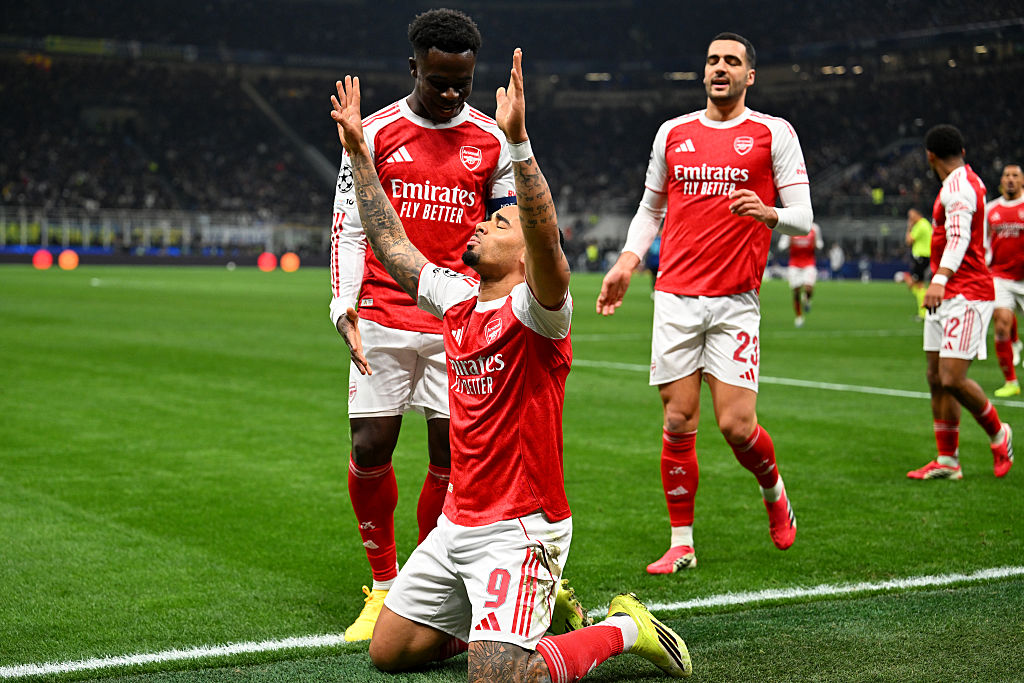
The best features, fun and footballing quizzes, straight to your inbox every week.
You are now subscribed
Your newsletter sign-up was successful
Want to add more newsletters?

Five times a week
FourFourTwo Daily
Fantastic football content straight to your inbox! From the latest transfer news, quizzes, videos, features and interviews with the biggest names in the game, plus lots more.

Once a week
...And it’s LIVE!
Sign up to our FREE live football newsletter, tracking all of the biggest games available to watch on the device of your choice. Never miss a kick-off!
Join the club
Get full access to premium articles, exclusive features and a growing list of member rewards.
Memories of their 3-2 quarter-final extra-time defeat by Algeria two years ago, when the Ivorians led 2-1 with only minutes of normal-time to go but kept attacking and conceded a last-gasp equaliser, appear to be playing on the Elephants' minds.
The sight of Yaya Toure taking a free-kick on the halfway line in the second half of Thursday's match against Burkina Faso with eight team-mates behind him and only two ahead was a stark illustration of how things have changed.
The 2-0 win over their smaller West African neighbours was enough to take Ivory Coast into the quarter-finals with a match to spare following a 1-0 win over Sudan in their opening game. But the critics are far from happy.
Both matches provided the incongruous sight of a team containing six English Premier League players packing their midfield and retreating en masse into their own half at the slightest whiff of danger against opponents who appeared to offer little threat.
"It was good to complete our second game without conceding a goal," said coach Francois Zahoui, summing up the new philosophy.
"We know that a team with a good defence can go far in the Nations Cup."
BRAZILIAN WAY
The best features, fun and footballing quizzes, straight to your inbox every week.
Their turnaround is reminiscent of the way Brazilian football changed following their traumatic failure to win the 1982 World Cup when the South Americans fielded one of the most exciting teams the tournament has ever seen.
The subsequent years saw Brazilian football exchange a flowing, passing game for a no-risk style based on physical prowess, widespread use of so-called tactical fouls and the idea of not letting the opposition play.
Midfielders such as Zico and the late Socrates were replaced with teeth-gritting, rough-tackling destroyers while speed merchant full-backs and clinical strikers provided the attacking options.
The wheel now appears to have turned full circle in Brazil where the success of Barcelona, based on their distinctive passing game, is leading to a re-think.
Ivory Coast, however, have just begun the trip down the defensive road.
Zahoui is very like former Brazilian World Cup coaches Dunga and Carlos Alberto Parreira as he becomes exasperated in trying to explain his approach to the media.
He is happy to remind his compatriots of 2006, when the Ivorians lost the final on penalties, and 2008, when the goals flowed but they went out again to Egypt in the semi-finals. Two years ago also still hurts.
"In the last tournament against Algeria, we improvised and we paid the price," he said. "We have learned from that experience. Our objective is to win the cup."
 Join The Club
Join The Club





